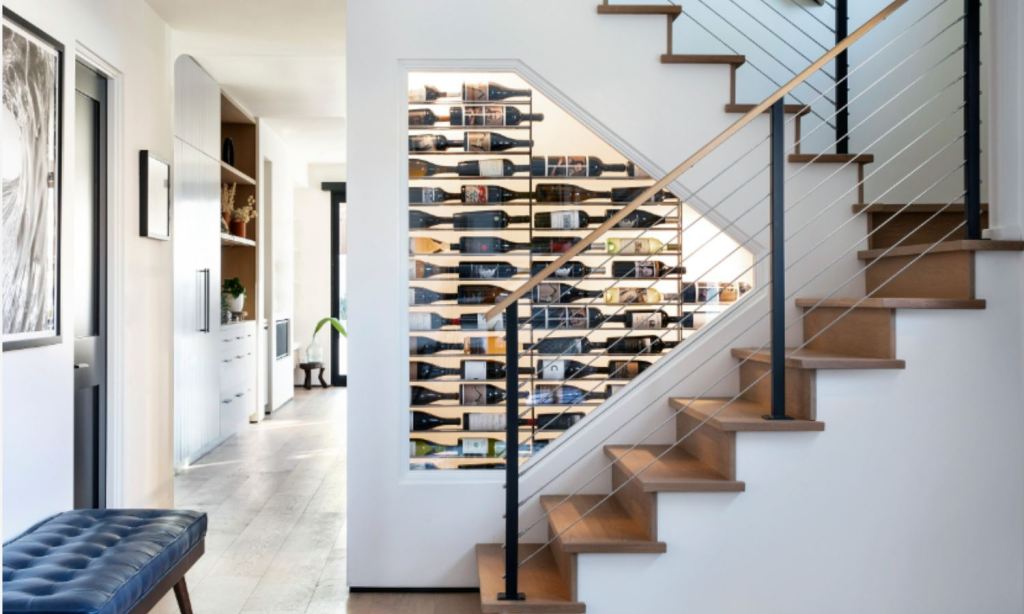Summer’s here, which means it’s time for backyard barbecues, garden gatherings, and relaxed evenings with your loved ones. You know the scene: laughter, good food, and, of course, a bottle of red wine making its way to the table, adding a touch of sophistication and cosiness to the festivities.
Whether you’re the host of a starlit soirée or a guest at a friend’s backyard restaurant, knowing how to store your red wine properly is the secret to ensuring those bottles steal the show and leave a lasting memory.
We’ve tapped St. Hallet’s lead winemaker, Angus Seabrook, for his expert, easy-peasy tips for storing red wine at home, helping you level up your summer entertaining game.

Avoid the Kitchen
For many of us, popping our favourite bottles of wine in the kitchen comes as second nature, but most people don’t realise it’s one of the hottest spaces in the home. It’s also important to keep your wine away from vibrations or movement, which, as we all know, is the staple of a kitchen. Instead, Seabrook suggests exploring alternative, cool spots in the home to ensure you’re not damaging your red wine.
Keep Your Wines in the Dark
Whether it’s a cupboard under the stairs, under your bed or at the back of your wardrobe, it’s essential to keep your wines out of the harsh Australian UV rays, as exposure can be quite harmful to wine. Seabrook suggests purchasing a cheap thermometer and monitoring rooms around the house to find the coolest cupboards. The best storage temperature is ideally between 10°C-15°C.
Regularly Check For Spoilage
Periodically inspect your wine bottles for signs of spoilage or leakage. A damaged cork, seepage, or visible sediment could indicate a problem. By catching issues early, you can prevent spoilage from affecting your entire collection.

Know Your Wines
All wines are different and have varying ageing potentials, so they can be stored for different periods of time to reach their optimal taste. Seabrook says it’s essential to understand the ageing potential of each wine you own.
“For example, this Summery St Hallett Rose is best enjoyed relatively young and fresh, but it can still be stored for up to five years if you prefer a more mature flavour. This bold St Hallett Blackwell Shiraz can benefit from careful cellaring and has the potential to age gracefully for up to 10-15 years, developing complex flavours over time.”
Corked or Screwcap?
Do you have a cork, screwcap, or both? According to Seabrook, it’s important to know how to store your wine. For corked bottles, he says they should always be stored horizontally (on their side) to keep the cork moist and prevent it from drying out, which could lead to wine spoilage.
Screw caps can be stored upright, as they don’t rely on maintaining contact with the wine to the same extent as cork closures.
Hold Onto Your Wine Boxes
It may seem like instinct to throw away your wine packaging; however, keeping your wine in its cardboard packaging can help regulate the temperature and avoid excess light. So, hold onto those wine boxes.

Label and Organise
You know what they say, the organised gets the good wine. Well, not really but Seabrook suggests maintaining a systematic approach to labelling and organising your wine collection.
“Keep a record of each bottle’s vintage, varietal, and storage location,” he says. “This makes finding and enjoying specific wines easier without disturbing the entire collection.”
Consider Investing in Wine Storage
If your wine collection is beginning to overwhelm your home, it may be worth looking into alternative storage options to keep your prized bottles at their peak. Consider purchasing a mini wine fridge; alternatively, most storage facility providers have special wine cellaring facilities, giving you peace of mind no matter how sweltering this summer turns out to be.
Related: Rising Temperatures Uncork New Challenges and Opportunities For Australia’s Wine Industry
Related: NON Isn’t a Non-Alcoholic Wine, So What Is It Then?
Read more stories from The Latch and subscribe to our email newsletter.







